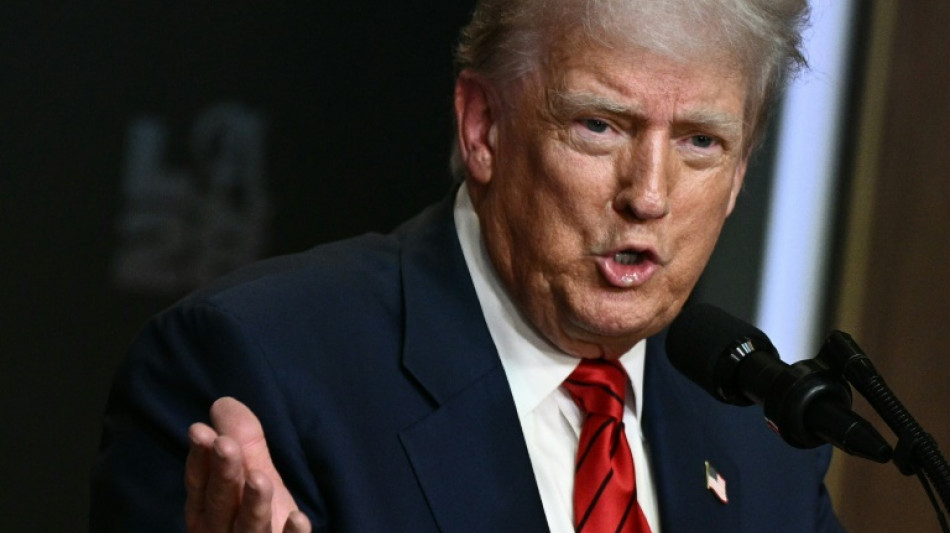
-
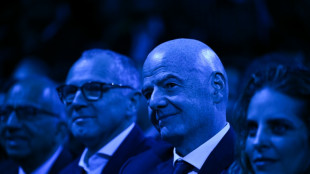 FIFA announce new peace prize to be awarded at World Cup draw in Washington
FIFA announce new peace prize to be awarded at World Cup draw in Washington
-
Australia's Cummins hints at return for second Ashes Test
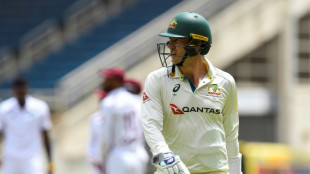
-
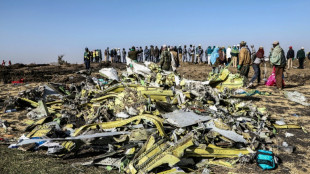 Boeing settles with one plaintiff in 737 MAX crash trial
Boeing settles with one plaintiff in 737 MAX crash trial
-
Man City win as Inter stay perfect, Barca held in Champions League
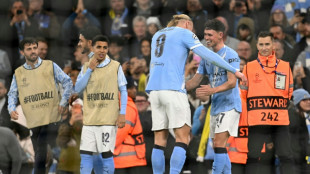
-
 French superstar DJ Snake wants new album to 'build bridges'
French superstar DJ Snake wants new album to 'build bridges'
-
Barca rescue draw at Club Brugge in six-goal thriller
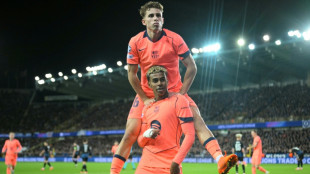
-
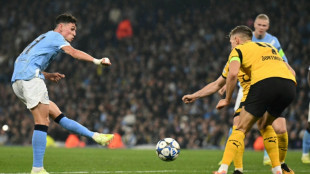 Foden hits top form as Man City thrash Dortmund
Foden hits top form as Man City thrash Dortmund
-
NBA officials brief Congress committee over gambling probe

-
 Inter beat Kairat Almaty to maintain Champions League perfection
Inter beat Kairat Almaty to maintain Champions League perfection
-
Newcastle sink Bilbao to extend Champions League winning run

-
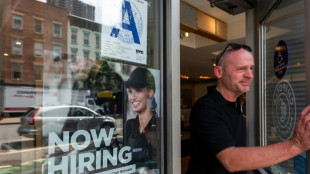 Wall Street stocks rebound after positive jobs data
Wall Street stocks rebound after positive jobs data
-
LPGA, European tour partner with Saudis for new Vegas event

-
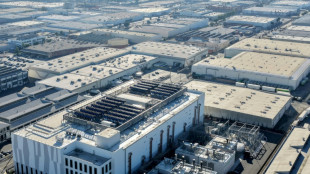 Eyes turn to space to feed power-hungry data centers
Eyes turn to space to feed power-hungry data centers
-
Jazz lose Kessler for season with shoulder injury

-
 League scoring leader Messi among MLS Best XI squad
League scoring leader Messi among MLS Best XI squad
-
MLS bans Suarez for Miami's winner-take-all playoff match
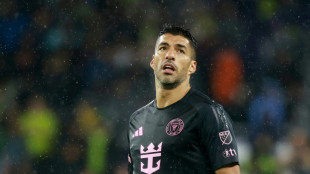
-
 McIlroy appreciates PGA of America apology for Ryder Cup abuse
McIlroy appreciates PGA of America apology for Ryder Cup abuse
-
Garnacho equaliser saves Chelsea in Qarabag draw
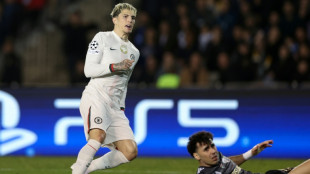
-
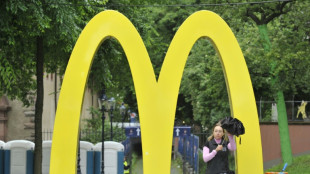 Promotions lift McDonald's sales in tricky consumer market
Promotions lift McDonald's sales in tricky consumer market
-
Five things to know about New York's new mayor
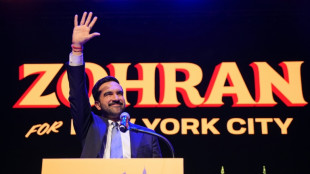
-
 Anisimova beats Swiatek to reach WTA Finals last four
Anisimova beats Swiatek to reach WTA Finals last four
-
US Supreme Court appears skeptical of Trump tariff legality
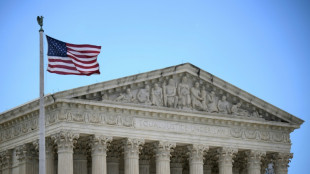
-
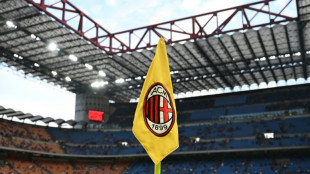 AC Milan post third straight annual profit on day of San Siro purchase
AC Milan post third straight annual profit on day of San Siro purchase
-
Angelina Jolie visits Ukrainian frontline city, media reports say

-
 UN says forests should form key plank of COP30
UN says forests should form key plank of COP30
-
Star designer Rousteing quits fashion group Balmain

-
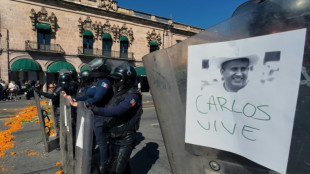 Mexico's Sheinbaum steps up cartel fight after murder of anti-narco mayor
Mexico's Sheinbaum steps up cartel fight after murder of anti-narco mayor
-
Attack on funeral in Sudan's Kordofan region kills 40: UN

-
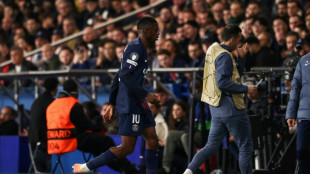 Key PSG trio set for spell on sidelines
Key PSG trio set for spell on sidelines
-
Democrats punch back in US elections - and see hope for 2026
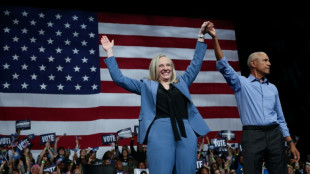
-
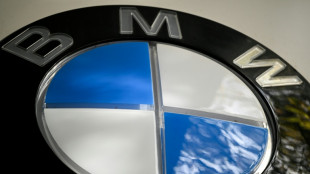 BMW reports rising profitability, shares jump
BMW reports rising profitability, shares jump
-
US Supreme Court debates legality of Trump's tariffs
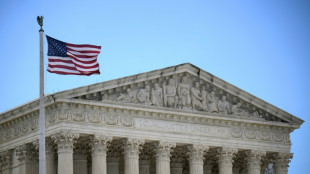
-
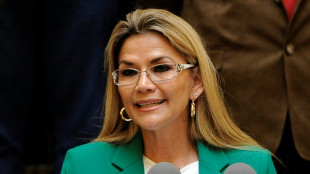 Bolivia Supreme Court orders release of jailed ex-president Jeanine Anez
Bolivia Supreme Court orders release of jailed ex-president Jeanine Anez
-
Wall Street stocks rise after positive jobs data
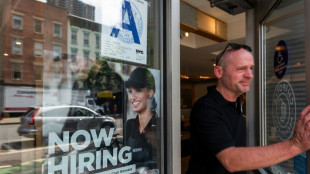
-
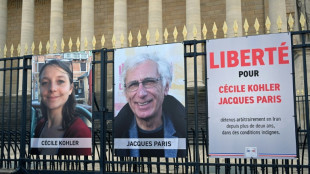 'Hostage diplomacy': longstanding Iran tactic presenting dilemma for West
'Hostage diplomacy': longstanding Iran tactic presenting dilemma for West
-
Rybakina stays perfect at WTA Finals with win over alternate Alexandrova
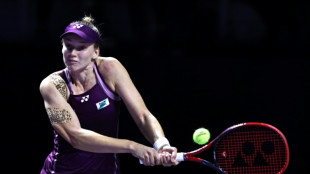
-
 Le Garrec welcomes Dupont help in training for Springboks showdown
Le Garrec welcomes Dupont help in training for Springboks showdown
-
Brussels wants high-speed rail linking EU capitals by 2040
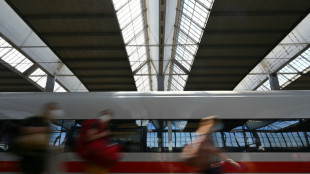
-
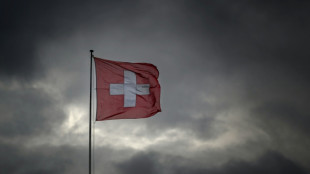 Swiss business chiefs met Trump on tariffs: Bern
Swiss business chiefs met Trump on tariffs: Bern
-
At least 9 dead after cargo plane crashes near Louisville airport
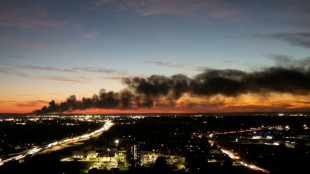
-
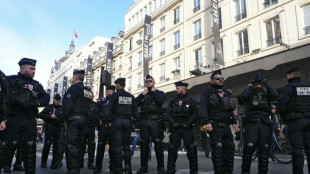 France moves to suspend Shein website as first store opens in Paris
France moves to suspend Shein website as first store opens in Paris
-
Spain's exiled king recounts history, scandals in wistful memoir
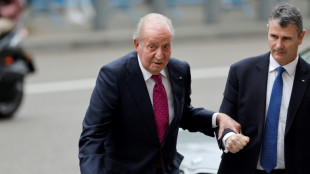
-
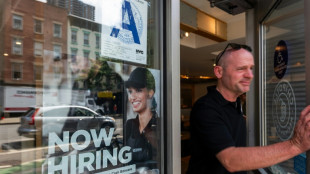 Wall Street stocks steady after positive jobs data
Wall Street stocks steady after positive jobs data
-
Trump blasts Democrats as government shutdown becomes longest ever
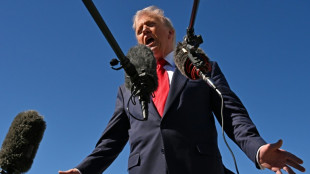
-
 Indian pilgrims find 'warm welcome' in Pakistan despite tensions
Indian pilgrims find 'warm welcome' in Pakistan despite tensions
-
Inter and AC Milan complete purchase of San Siro

-
 Swedish authorities inspect worksite conditions at steel startup Stegra
Swedish authorities inspect worksite conditions at steel startup Stegra
-
Keys withdraws from WTA Finals with illness

-
 Prince Harry says proud to be British despite new life in US
Prince Harry says proud to be British despite new life in US
-
BMW boosts profitability, welcomes Nexperia signals
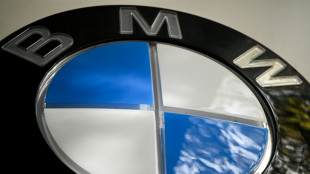

Higher US tariffs kick in for dozens of trading partners
The United States began charging higher tariffs on dozens of trading partners Thursday, in a major escalation of President Donald Trump's drive to reshape global commerce in America's favor.
Shortly before the new levies kicked in, the United States separately announced it would double tariffs on India to 50 percent and hit many semiconductor imports from around the world with a 100-percent levy.
As an executive order signed last week by Trump took effect, US duties rose from 10 percent to levels between 15 percent and 41 percent for a list of trading partners.
Many imports from economies including the European Union, Japan and South Korea now face a 15-percent tariff, even with deals struck with Washington to avert steeper threatened levies.
But others like India face a 25-percent duty -- to be doubled in three weeks to 50 percent -- while Syria, Myanmar and Laos face staggering levels at either 40 percent or 41 percent.
Switzerland's government, which failed to convince Trump not to impose a stinging 39-percent tariff, was set to hold an extraordinary meeting later Thursday.
Taking to his Truth Social platform just after midnight, Trump posted: "IT'S MIDNIGHT!!! BILLIONS OF DOLLARS IN TARIFFS ARE NOW FLOWING INTO THE UNITED STATES OF AMERICA!"
The latest wave of "reciprocal" duties, aimed at addressing trade practices Washington deems unfair, broadens the measures Trump has imposed since returning to the presidency.
- 'No charge' -
On the eve of his latest salvo, he doubled planned duties on Indian goods to 50 percent, citing New Delhi's continued purchase of Russian oil.
The new levy -- up from 25 percent now -- would take effect in three weeks.
The Federation of Indian Export Organisations called the move a "severe setback for Indian exports, with nearly 55 percent of our shipments to the US market directly affected."
Trump's order also threatened penalties on other countries that "directly or indirectly" import Russian oil, a key revenue source for Moscow's war in Ukraine.
Washington has already separately stuck tariffs on sector-specific imports such as steel, autos, pharmaceuticals and chips.
Trump said Wednesday he also planned an "approximately 100 percent tariff" on semiconductor imports, but with "no charge" for companies investing in the United States or committed to do so.
Shares in Taiwanese chip-making giant TSMC surged as Taipei said it would be exempt, but some other Asian manufacturers took a beating.
Companies and industry groups warn that the new levies will severely hurt smaller American businesses, while economists caution that they could fuel inflation and weigh on growth in the longer haul.
With the dust settling on countries' tariff levels, at least for now, Georgetown University professor Marc Busch expects US businesses to pass along more of the bill to consumers.
- 'This will matter' -
An earlier 90-day pause in these higher "reciprocal" tariffs gave importers time to stock up, he said.
But although the wait-and-see strategy led businesses to absorb more of the tariff burden initially, inventories are depleting and it is unlikely they will do this indefinitely, he told AFP.
"With back-to-school shopping just weeks away, this will matter politically," said Busch, an international trade policy expert.
The tariff leaves lingering questions for partners that have negotiated deals with Trump recently.
Tokyo and Washington, for example, appear at odds over key details of their trade pact, in particular on when lower levies on Japanese cars will take place.
Generally, US auto imports now face a 25-percent duty under a sector-specific order. Toyota has cut its full-year profit forecast by 14 percent because of the tariffs.
Japan and the United States also appear to differ on whether the "reciprocal" tariffs of 15 percent on other Japanese goods would be on top of existing levies or -- like the EU -- be capped at that level.
China and the United States meanwhile currently have a shaky truce in their trade war but that is due to expire on August 12.
Chinese exports to the United States tumbled 21.7 percent last month, official data showed on Wednesday, while those to the European Union jumped 9.2 percent and to Southeast Asia by 16.6 percent.
- New fronts -
Meanwhile, the EU is seeking a carveout from tariffs for its key wine industry.
In a recent industry letter addressed to Trump, the US Wine Trade Alliance and others urged the sector's exclusion from tolls, saying: "Wine sales account for up to 60 percent of gross margins of full-service restaurants."
Trump has separately targeted Brazil over the trial of his right-wing ally, former president Jair Bolsonaro, who is accused of planning a coup.
US tariffs on various Brazilian goods surged from 10 percent to 50 percent Wednesday, but broad exemptions including for orange juice and civil aircraft are seen as softening the blow. Still, key products like Brazilian coffee, beef and sugar are hit.
burs-stu/djw/dan
N.Awad--SF-PST
